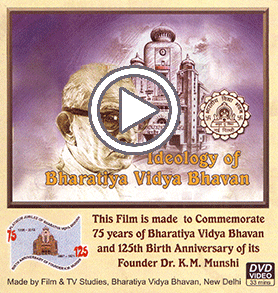Diploma in Journalism & Mass Communication (DJMC) |
Career in Journalism & Mass Communication is both exciting as well as paying, not only in terms of money but prestige and glamour. It is an exclusive profession which offers responsible status and job satisfaction Media is a 4th pillar of Democracy. Media includes different means of communication such as Television, Radio, Newspaper, Magazine etc as well as press or News Reporting agencies taken collectively. Mass communication is the academic study of the various means through which individuals and agencies transmit information through mass media to large section of population at the same time.
This diploma in Journalism & Mass Communication (DJMC) is somehow little bit of everything of communication media business. This includes training in Print Media, Electronic Media, Social Media, Public Relations, Advertising and Corporate Communication. After completing this course, students are ready to join any one of these areas, or switch between these as opportunity comes.
Scope: |
What students learn at BJMC for 3 years at any university, we teach them in one year. Students do lot of practicals and become confident to get internship and job. Students are advised to join BA with Open University. |
Eligibility: |
12th pass. |
Timing: |
3 pm to 6 pm. 6 days a week, (2 days theory, 2 days practical, 2 days projects). |
Note: |
Students of RTVJ are advised to join Add-on Course on TV Acting. This will help them to groom overall personality. Also technique of good body language will help them to get early break to face camera and clear Audition Test for job. For concession in fee structure refer to fee chart. |
Duration: |
One academic year |
Examination Pattern
Group A – Internal Examinations
Programme is divided into two semesters, and there will be an examination at the end of each semester. Also there will be Evaluation Task (E.T.) at the end of every month as a one paper covering all subjects and topics of theory and practical covered during that month of study. Marks of these internal examinations will be notified on final marksheet.
Internal examinations as Evaluation Task (E.T.) and assignments will be held at the end of August, September, October, November, January, February and March.
Students must appear and pass in minimum 5 E.T. and minimum 5 assignments.
Each Evaluation Task (E.T.) of 50 marks X 5 papers |
= |
250 marks |
Each assignment of 50 marks X 5 assignments |
= |
250 marks |
Total (Group A) |
= |
500 marks |
Group B – Final Examinations
Paper I to Paper V, towards end of 1st Semester.
Paper VI to Paper VIII, towards end of 2nd Semester
Paper I |
Human Communication (Theory & Practice) |
50 marks |
Paper II |
Journalism & Print Media |
50 marks |
Paper III |
Electronic Media Tools & Technique |
50 marks |
Paper IV |
Radio & TV Production and Presentation |
50 marks |
Paper V |
Life Management |
50 marks |
Paper VI |
Applied Social Media |
50 marks |
Paper VII |
Media Management & Public Relations |
50 marks |
Paper VIII |
Computer Application for Media |
50 marks |
Each paper of 50 marks X 8 papers = |
400 marks |
|
|
Total (Group B) = |
400 marks |
|
Note: To qualify, student must pass all papers.
Group C – Other Evaluations
1. |
Participation in Practicals & Projects during 1st Semester |
100 marks |
2. |
Participation in Practicals & Projects during 2nd Semester |
100 marks |
3. |
Skill Test for 1st Semester in December |
50 marks |
4. |
Skill Test for 2nd Semester in March |
50 marks |
5. |
Internal Assessment as per attendance, general behaviour, sincerity in class work, homework, submission etc. |
100 marks |
Total (Group C) = |
500 marks |
|
Group A + Group B + Group C = |
(Total) |
|
To qualify for Diploma student must secure 35% marks in individual subject and 40% aggregate. He/She must attend 80% of the theory and practical classes. And submission of all assignments are compulsory.

















